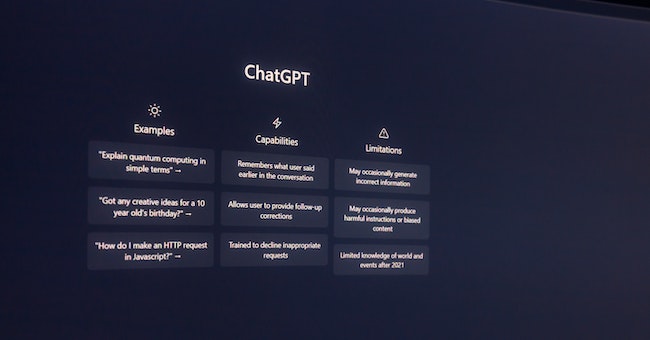Enhancing Trust and Protection: AIPRM Reviews and Insights

Introduction
In the ever-evolving world of Search Engine Optimization (SEO), Artificial Intelligence (AI) plays a crucial role in improving website rankings and user experience. However, with the increasing complexity of AI systems, it becomes essential to address potential biases, privacy concerns, and ethical considerations. This is where Artificial Intelligence Policy and Risk Management (AIPRM) comes into play. In this article, we will explore the concept of AIPRM and its significance in the context of SEO extensions.
Understanding AIPRM (AI-Powered Risk Management)
What is AIPRM
As is said in the introduction, AIPRM stands for Artificial Intelligence in Project Risk Management. It refers to the application of artificial intelligence (AI) techniques in the field of project risk management. Project risk management involves identifying, assessing, and mitigating risks that may impact the successful completion of a project.
By leveraging AI technologies, AIPRM aims to improve the effectiveness and efficiency of project risk management. It can provide valuable insights, automate repetitive tasks, and enhance decision-making processes. However, it is currently recognized that AIPRM should be used as a tool to support human judgment and expertise, rather than replacing it entirely.
Core Objectives of AIPRM
The core objectives of AIPRM, in short, are to enhance the effectiveness and efficiency of project risk management processes. Thanks to cutting-edge AI technologies, AIPRM aims to achieve the following objectives:
Risk Identification: AIPRM helps in identifying potential risks that may impact the successful completion of a project. It analyzes historical project data, external data sources, and industry benchmarks to detect patterns and emerging risks. By automating the risk identification process, AIPRM can save time and improve the accuracy of risk identification.
Risk Assessment: AIPRM assesses the likelihood and impact of identified risks. It analyzes relevant data and historical project performance to provide quantitative insights into the potential consequences of different risks. By using AI algorithms, AIPRM can analyze large volumes of data quickly and provide more accurate risk assessments.
Risk Mitigation: AIPRM suggests appropriate risk mitigation strategies based on historical data and best practices. It helps project teams in developing contingency plans, optimizing resource allocation, and making informed decisions to minimize the impact of risks. By leveraging AI technologies, AIPRM can provide valuable insights and recommendations for effective risk mitigation.
Real-time Monitoring: AIPRM continuously monitors project data, including progress, performance, and external factors, in real-time. It identifies any deviations or potential risks and provides early warnings and alerts to project teams. By enabling real-time monitoring, AIPRM helps project teams to take proactive measures and address emerging risks promptly.
Decision Support: AIPRM provides decision support by analyzing and interpreting complex project data. It helps project managers and teams in making informed decisions regarding risk management strategies, resource allocation, and project planning. By leveraging AI technologies, AIPRM can process and analyze large amounts of data quickly, enabling more accurate and timely decision-making.
AIPRM for ChatGPT Extension
The integration of AIPRM in ChatGPT, an AI language model, is a significant development in the field of natural language processing. AIPRM brings the capabilities of project risk management to ChatGPT, enabling it to analyze and mitigate potential risks associated with its responses. By incorporating AIPRM, ChatGPT can identify and address issues such as misinformation, biased content, and inappropriate language, which are common concerns in AI-generated text.
The integration of AIPRM in ChatGPT involves leveraging AI technologies to enhance the quality and reliability of its responses. AIPRM analyzes the context, content, and potential risks associated with each response generated by ChatGPT. It uses machine learning algorithms to identify patterns, detect potential risks, and suggest modifications to improve the overall quality of the generated text. This integration ensures that ChatGPT's responses are more accurate, reliable, and aligned with ethical standards.
AIPRM plays a crucial role in enhancing trust and protection in ChatGPT's responses. By analyzing the generated text, AIPRM can identify potential risks such as misinformation, biased content, or inappropriate language. It helps in ensuring that the responses generated by ChatGPT are reliable, unbiased, and aligned with ethical guidelines.
The utilization of AIPRM in ChatGPT brings major benefits in the process of AI interactions. In particular, by leveraging AIPRM, ChatGPT can:
Mitigate Risks: AIPRM helps in identifying and addressing potential risks associated with AI-generated text. It analyzes the context, content, and potential risks of each response, enabling ChatGPT to provide more accurate and reliable information while minimizing the chances of misinformation, biased content, or inappropriate language.
Ensure User Privacy: AIPRM plays a crucial role in protecting user privacy. It helps in identifying and flagging potentially sensitive or personally identifiable information in the generated text. By integrating AIPRM, ChatGPT can ensure that user privacy is maintained, and sensitive information is not inadvertently disclosed.
Deliver Responsible AI Interactions: AIPRM enables ChatGPT to deliver responsible AI interactions by adhering to ethical guidelines and standards. It helps in identifying and addressing potential risks such as biased content, misinformation, or inappropriate language. By incorporating AIPRM, ChatGPT can provide more reliable, unbiased, and responsible responses, ensuring a positive user experience.
AIPRM Reviews: Evaluating the Effectiveness and Performance
AIPRM (Artificial Intelligence and Predictive Risk Modeling) reviews play a crucial role in assessing the effectiveness and performance of AI systems. These reviews aim to evaluate the reliability and accuracy of AI models in a transparent and reliable manner, ensuring that they meet the desired objectives and adhere to ethical standards. In this section, we will explore the methodologies used in AIPRM reviews and showcase some of the most illustrative real examples.
Methodologies and Metrics Used in AIPRM Reviews
When conducting AIPRM reviews, various methodologies and metrics are employed to assess the performance and effectiveness of AI systems. One important aspect is bias analysis, which involves examining whether the AI model exhibits any unfair or discriminatory behavior towards certain groups or individuals. By identifying and mitigating biases, AIPRM reviews help ensure that AI systems are fair and equitable.
Explainability is another crucial factor in AIPRM reviews. It refers to the ability to understand and interpret the decision-making process of AI models. By providing explanations for the predictions or recommendations made by AI systems, explainability enhances transparency and accountability. It allows stakeholders to comprehend how the AI model arrived at a particular outcome, enabling them to trust and validate its results.
Data privacy assessment is also an integral part of AIPRM reviews. It involves evaluating how AI systems handle and protect sensitive information. As AI models often rely on large datasets, it is essential to ensure that privacy regulations and standards are upheld. AIPRM reviews assess whether appropriate measures are in place to safeguard personal data and maintain confidentiality.
Real-Life Examples of AIPRM Reviews and Their Impact
To illustrate the significance of AIPRM reviews, there are examples demonstrating how AIPRM reviews have helped identify and rectify issues in AI systems, subsequently leading to improved performance and outcomes.
Healthcare Systems: AIPRM reviews have been conducted in healthcare systems to assess the performance and fairness of AI algorithms used for diagnosis and treatment recommendations. These reviews have revealed instances where biases were present, leading to disparities in patient care based on factors like race or gender. By identifying these biases, healthcare providers can make necessary adjustments to ensure that AI systems provide equitable and unbiased healthcare recommendations, improving patient outcomes.
Finance and Credit Scoring: AIPRM reviews have been instrumental in evaluating AI systems used in finance and credit scoring. These reviews assess whether AI algorithms discriminate against certain groups or perpetuate existing biases. For example, a review may uncover that an AI model systematically favors individuals from certain socioeconomic backgrounds, leading to unfair lending practices. By identifying and addressing such biases, financial institutions can ensure that credit decisions are based on accurate and non-discriminatory factors, promoting financial inclusivity.
Recruitment and Hiring: AIPRM reviews have also been applied to assess AI systems used in recruitment and hiring processes. These reviews examine whether AI algorithms inadvertently discriminate against certain demographic groups during candidate screening or resume ranking. By identifying biases in these systems, organizations can rectify discriminatory practices and ensure fair opportunities for all candidates, leading to a more diverse and inclusive workforce.
Criminal Justice and Sentencing: AIPRM reviews have been used to evaluate AI systems employed in the criminal justice system, such as risk assessment tools used for predicting recidivism rates or determining bail amounts. These reviews scrutinize the potential biases embedded in these systems, which may result in disproportionate outcomes for marginalized communities. By addressing these biases, the criminal justice system can strive for more equitable and unbiased decision-making, reducing the impact of systemic biases in sentencing and improving overall fairness.
Customer Service Chatbots: AIPRM reviews have been conducted on AI-powered chatbots used in customer service. These reviews aim to ensure that chatbots provide accurate, unbiased, and helpful responses to customer queries. By evaluating these systems, organizations can identify any biases or errors in the chatbot's responses and improve the quality of customer interactions, enhancing customer satisfaction and trust.
The impact of AIPRM reviews is significant. They shed light on biases and ethical concerns within AI systems, enabling organizations to make necessary adjustments, ensure fairness, and mitigate potential harm. By conducting these reviews, organizations demonstrate their commitment to responsible AI development and deployment, fostering public trust in AI technologies and promoting a more inclusive and equitable society.
Online Courses to Learn about AIPRM
If you're interested in diving deeper into the fascinating world of AIPRM, there is a myraid of online courses available that can provide you with comprehensive knowledge and insights. These courses cover a wide range of topics, from understanding the fundamentals of AIPRM to exploring its applications and implications in various industries. Specifically, AZClass stands out, as a predominant online course aggregator, at which an array of informative tutorials are accessible on AIPRM Online Courses Catalog.
AIPRM for ChatGPT - Multi-Community Version - Overview Version 01112
The "AIPRM for ChatGPT - Multi-Community Version - Overview Version 01112" is an online course offered on YouTube that focuses on enhancing productivity. This version of AIPRM offers 1-click prompts for various fields such as SEO, marketing, copywriting, software engineering, and DevOps. The course highlights the benefits of using this free and user-friendly tool to maximize work efficiency and output.
Pros of the course:
Custom Chatbot Prompts
Increased Productivity
Accessibility and Ease of Use
Community-Specific Prompts
Comprehensive Course Content
Free Access
AIPRM + ChatGPT: Use SEM LIMITES Facilmente (Passo a Passo) JivoChat
This is an online course offered on YouTube centered on enhancing productivity. This version of AIPRM offers 1-click prompts for various fields such as SEO, marketing, copywriting, software engineering, and DevOps. The course highlights the benefits of using this free and user-friendly tool to maximize work efficiency and output.
Pros of the course:
Custom Chatbot Prompts
Increased Productivity
Accessibility and Ease of Use
Community-Specific Prompts
Comprehensive Course Content
Free Access
Chat GPT & AIPRM for Human Written Plagiarism Free SEO Optimized Content
This course available on YouTube is dedicated to bosltering the creation of unique, plagiarism-free, and search engine optimized (SEO) content. The course emphasizes the importance of avoiding plagiarism, as it is unethical and can have serious consequences. By developing original content, learners not only show respect for others' work but also showcase their own creativity and skills.
Pros of the course:
Creating Unique Content
Plagiarism Checking
SEO Optimization
Skill Development
Free Access
Future Directions and Implications
The field of AIPRM is constantly evolving, and it holds immense potential for shaping the future of AI technologies. As we explore future directions and implications of AIPRM, several key aspects come into focus:
Policy and Regulation: One of the key future directions of AIPRM is the development of robust policies and regulations governing the ethical and responsible use of AI. As AI continues to advance and integrate into various aspects of our lives, policymakers and regulatory bodies will play a crucial role in ensuring the development and deployment of AI systems that align with societal values, privacy concerns, and legal frameworks. AIPRM will contribute to the formulation of these policies and regulations, addressing emerging challenges and guiding AI governance.
Explainability and Interpretability: The future of AIPRM will focus on enhancing the explainability and interpretability of AI systems. As AI algorithms become more complex and sophisticated, there is a growing need to understand how decisions are made and provide transparent explanations to users. AIPRM will drive research and development in methods and techniques for explaining AI outcomes, ensuring that AI systems are more interpretable, understandable, and trustworthy.
Risk Assessment and Mitigation: AIPRM will continue to play a crucial role in assessing and mitigating risks associated with AI technologies. This includes identifying potential biases, ensuring data privacy and security, addressing algorithmic fairness, and managing unintended consequences of AI deployment. By integrating risk assessment frameworks and techniques, AIPRM will enable organizations to proactively identify and address risks, making AI systems more reliable and accountable.
Ethics and Responsible AI: The ethical considerations surrounding AI will remain a focal point in the future of AIPRM. As AI systems become more pervasive, there will be a heightened emphasis on designing and deploying AI technologies that align with ethical standards. AIPRM will guide organizations in developing AI systems that are fair, transparent, and accountable, while also addressing societal concerns such as job displacement, algorithmic bias, and AI's impact on human well-being.
Interdisciplinary Collaboration: AIPRM will witness increased collaboration between various disciplines, including computer science, law, ethics, sociology, and policy-making. This interdisciplinary approach is essential for addressing the complex challenges posed by AI technologies. By fostering collaboration and knowledge-sharing, AIPRM will enable a comprehensive understanding of AI's implications and facilitate informed decision-making.
Continuous Learning and Adaptation: The field of AIPRM will continue to evolve as AI technologies progress. It will require continuous learning and adaptation to keep up with emerging trends, advancements, and new risks associated with AI. Professionals in the AIPRM domain will need to stay updated through ongoing education, research, and engagement with industry experts and policymakers.
Conclusion
In the ever-changing landscape of artificial intelligence, AIPRM emerges as a vital framework for ensuring the responsible and ethical use of AI technologies. Throughout this article, we have explored the various facets of AIPRM and its significance in addressing potential biases, privacy concerns, and ethical considerations in AI systems.
Starting with an understanding of AIPRM, we delved into its core objectives, emphasizing trustworthiness, transparency, fairness, and accountability. We then examined the integration of AIPRM in ChatGPT, an AI language model, highlighting how it enhances trust, protection, and user privacy in AI interactions. Furthermore, we explored the benefits of utilizing AIPRM in ChatGPT to mitigate risks and deliver responsible AI interactions.
We also shed light on AIPRM reviews, evaluating their effectiveness and performance. Recognizing the importance of education and knowledge in this field, we touched upon online courses available to learn about AIPRM. Looking ahead, we explored the future directions and implications of AIPRM. Numerous factors will shape the landscape of AI, ensuring that its integration aligns with societal values, ethical standards, and responsible practices.
As AI continues to transform industries and societies, AIPRM serves as a guiding framework, addressing challenges, mitigating risks, and fostering the development of AI systems that prioritize trust, fairness, transparency, and accountability. By embracing AIPRM, we pave the way for a future where AI technologies are harnessed for the benefit of all while ensuring the preservation of human values and rights.





